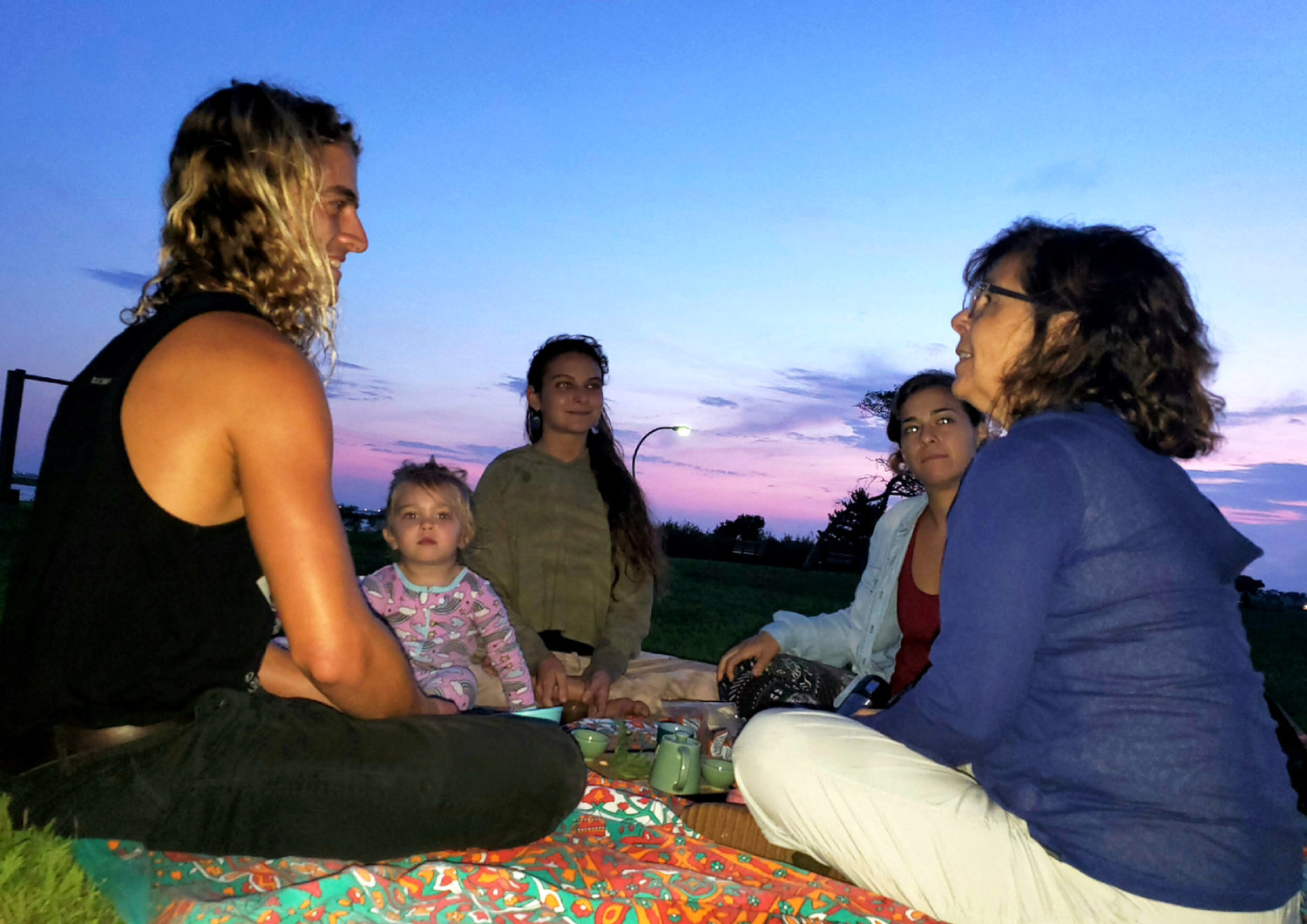Pharmacist uses nature to heal
Combines Western and ancient Japanese practices
Finding comfort in a slow walk in an open field. Seeking solace in a short retreat along wooded trails. Escaping stress and anxiety in a bracing coastal breeze. Imagine sharing these experiences with a group of students in the “wilds” of Wantagh Park, and you’ll have a rudimentary understanding of the Japanese practice of shinrin-yoku, or forest bathing.
It is a practice that Stephanie Gaglione, 27, who lives in Bethpage, chose to explore in the midst of a budding pharmaceutical career.
On Aug. 16, Gaglione led a small group of Long Islanders to the shoreline of Wantagh Park and introduced them to shinrin-yoku, giving them a brief history of its origins and explaining why she became interested in it and why she shares it with others. For the following three hours or so, she directed the group through a series of “invitations,” soft commands designed to inspire action, or sometimes inaction.
Gaglione earned her PharmD degree from the Albany College of Pharmacy and Health Sciences in 2015. Since then she has accrued 11 pharmacy internships, and now works as a clinical pharmacist for CHC Health. The company is based in Des Moines, Iowa, and she mostly works with patients remotely, she said, adding that she felt that something was missing.
“When I was asked in high school what I wanted to do in my life, I said, this is a great plan,” Gaglione said. “It’s logical, secure, but I didn’t know how to ask myself these important questions I had.”
Last year, she became interested in more holistic forms of therapy. She took a position as chiropractic assistant and in marketing outreach at Advanced Holistic, a family chiropractic health care office that focuses on holistic healing. This summer, she taught children at the USDAN Summer Camp for the Arts as an assistant nature teacher.
To immerse herself in holistic healing, she joined the Association of Nature and Forest Therapy and took part in a guide-training retreat in Auckland, New Zealand. The technique that she learned was shinrin-yoku, also known as “forest bathing.” According to the association, studies show that those involved in this form of therapy can experience “a wide array of health benefits, especially in the cardiovascular and immune systems, and for stabilizing and improving cognition and mood.”
Gaglione underwent training to be a shinrin-yoku guide in New Zealand, and shared her experiences and findings when she returned. She said she believes that the future of therapy may lie in a combination of traditional Western medicine and more experimental holistic methods.
“Seeing people that were sick in the medical world and not getting full care and resolve — that led me to looking at different, holistic types of care,” Gaglione said. “That has led me to both extremes. You can’t be all natural, and you can’t fully rely on modern Western medicine. To me, health is more than just the physical body. More people are focusing on mental health these days, but also spiritual health, which I think is going to take a little bit longer to become a focus. I’m trying to bring forth a balance between them.”
One of the members of her group at Wantagh Park two weeks ago was Johnny Korkodilos, 28, of Great River. Korkodilos is a field manager at the Bayard Cutting Arboretum in Great River, where he lives in the manor house of the 691-acre state park property and tends to the fields.
“This experience gave me the ability to tap much more deeply into the moment, become far more present than even my yoga practice, my qigong practice, or farming,” Korkodilos said, referring to a Chinese form of gentle exercise. “So often, we’re so goal-oriented, worried about what we’ve done, what we have to do. Something about this practice, sitting in the presence of nature with no goal and the freedom to just explore it, it helped me stay present.”
Gaglione led the “invitations” with a soothing tone, and eased everyone into the process. She wove nature appreciation exercises in with those enhancing trust, with the aim of building the participants’ respect for the natural world as well as a kinship with their fellow humans.
She encouraged them to use senses other than sight to fully appreciate the cool breeze off the ocean, the salt air and the sound of waves crashing on rocks. The session concluded with a reflection on the day and a sharing of mint tea and natural snacks under the setting sun.
“I think it went really well, and I love sharing this,” Gaglione said. “I was too caught up at first in ‘Am I doing this right?’ or ‘Am I forgetting anything important and will they notice?’ until I realized that’s not what I do this for. I do this to share my love for this, and I do this to find peace, and I feel peace.”






